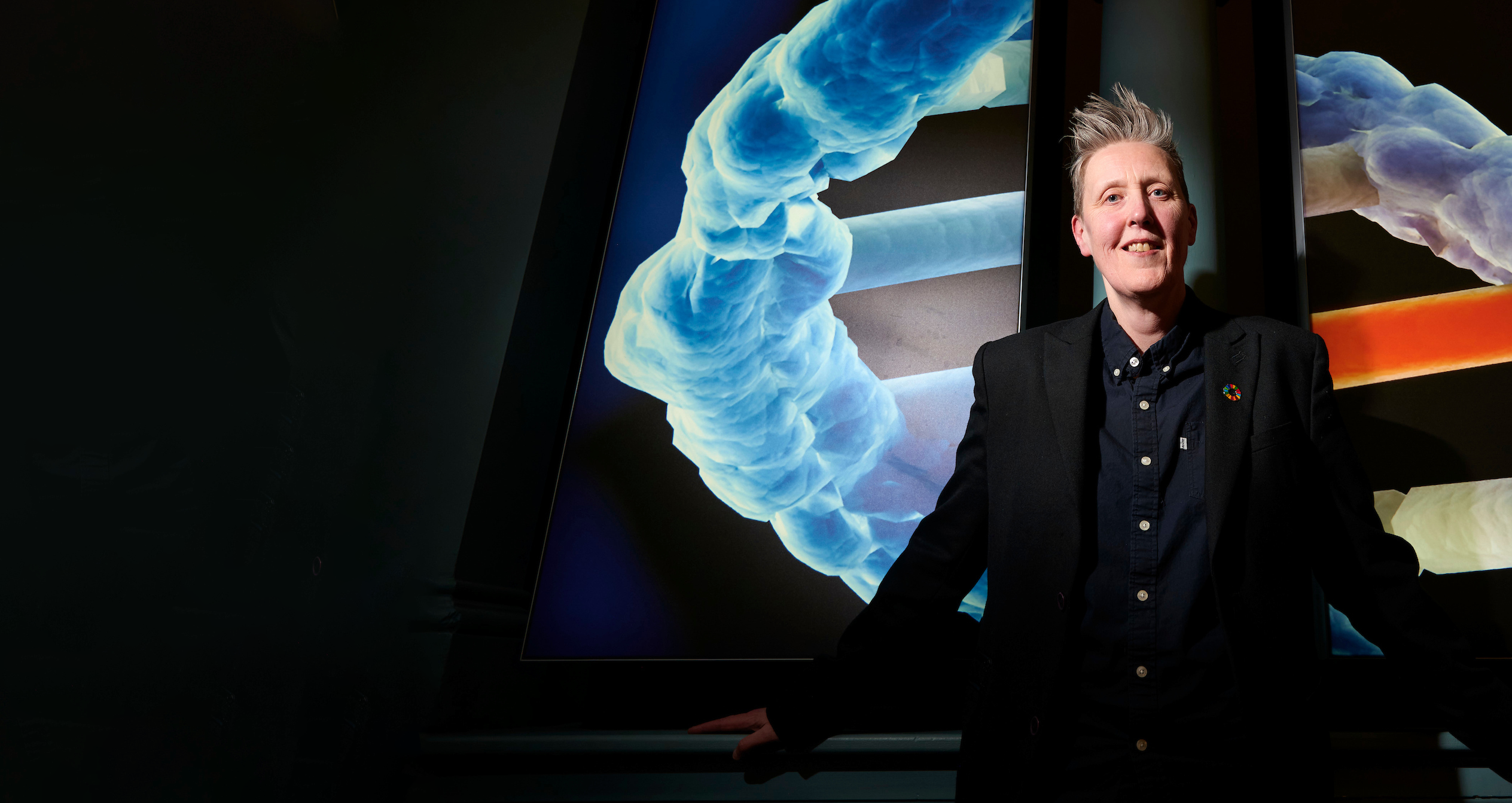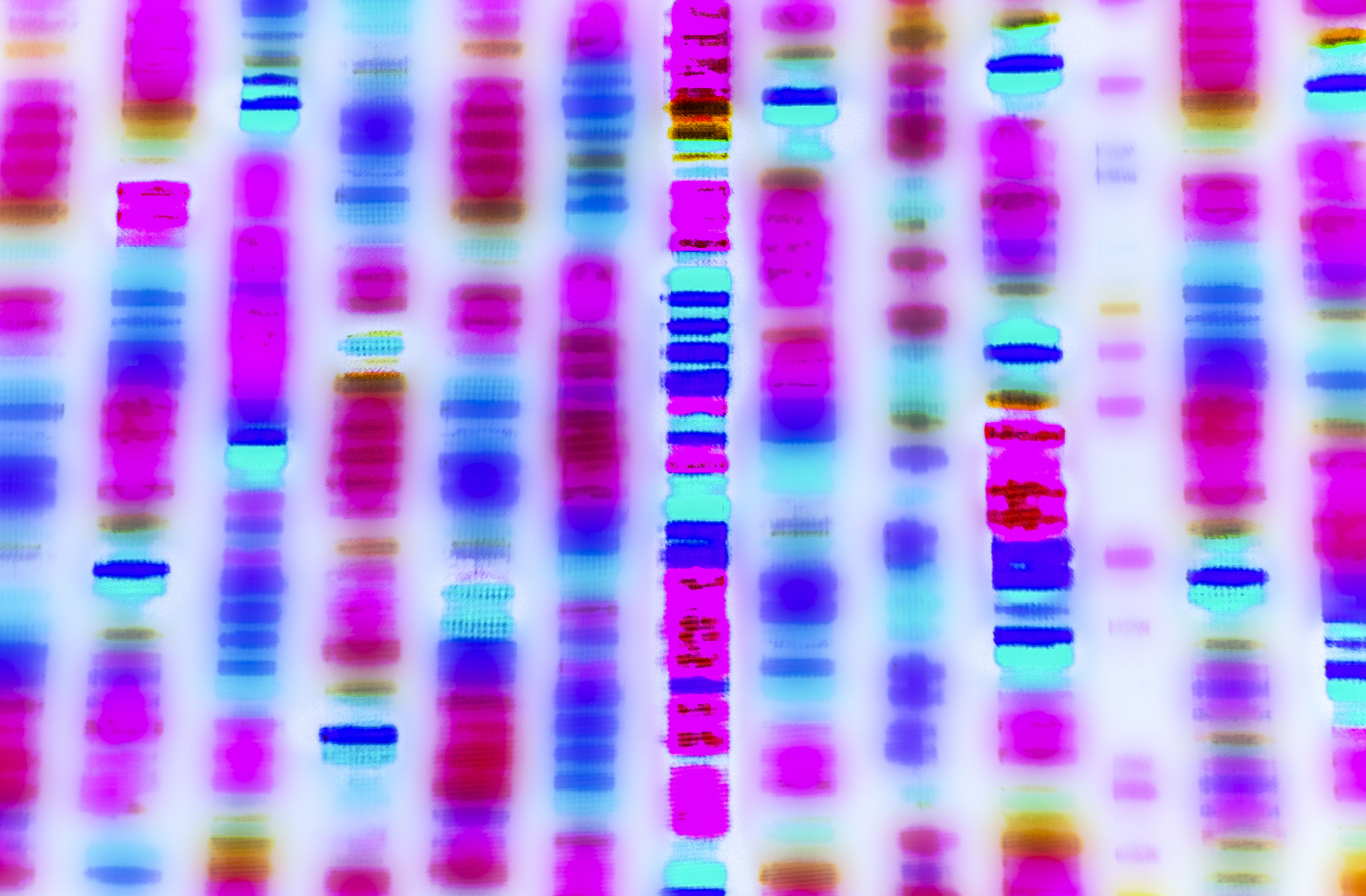Switched-on treatments

Gene therapies alter the genetics inside cells in the body, in order to treat or prevent disease. Often this involves introducing a normal version of a faulty gene: typically a ‘vector’ (such as a virus that has been made harmless) is introduced into the patient, and this passes new genetic material into the patient's cells.
The potential benefits of gene therapies for treating a range of serious conditions (such as cancer, cystic fibrosis, heart disease and diabetes) are well-known. But one of the problems with current treatments is that there is not much control over how the new gene behaves in the body – which tissue it is active in, how active it is and long it is active for. The treatment can cause problems and be toxic if these levels are not correct.
Our Hub will develop control systems so that the genes that enter a patient’s body are active in the right tissue, at the right time, and at the right level
Susan Rosser
Professor of Synthetic Biology at the University of Edinburgh
CREDIT Callum Bennetts Maverick Photo Agency

A new specialist centre will soon be providing more targeted and controlled, and therefore safer, gene therapy treatments. The Engineered Genetic Control Systems for Advanced Therapeutics Hub is one of six new engineering biology centres across the UK, which will jointly receive £100m in investment from the UKRI Technology Missions Fund and the Biotechnology and Biological Sciences Research Council (BBSRC).
Susan Rosser, Professor of Synthetic Biology at the University of Edinburgh, will be leading the new centre. She explains: “our Hub will develop control systems so that the genes that enter a patient’s body are active in the right tissue, at the right time, and at the right level – enough to be effective, but not so much that they become toxic. This is about building that specificity, with more targeted delivery.”
The Hub will be working to develop new genetic switches that can ensure that genes are only ‘switched on’ in the tissue where they are needed, for as long as they are needed
The Hub will be working to develop new genetic switches that can ensure that genes are only ‘switched on’ in the tissue where they are needed, for as long as they are needed: they can also be switched off if things go wrong.
The new Hub brings together a multi-disciplinary team from the Universities of Edinburgh and Oxford, Imperial College London, and the CRUK Scotland Institute (formerly the CRUK Beatson Institute). Industry partners are also involved, especially in contributing switch and control technologies, and in manufacturing the virus vectors that are used for delivering genes.
The Hub, which opens in May, will focus on tackling a range of diseases, including various cancers, cardiovascular disease, and rare genetic conditions. There are clear benefits to patients in developing safer, more effective treatments, but this will also provide a significant economic boost to the UK. “We are a world leader in this area,” says Professor Rosser. “We have a fantastic pharmaceutical industry and an excellent clinical trials industry, and we lead in the manufacture of virus vectors. The new Hub feeds into all of these.”
Finally, this funding is only the latest in a series of major UKRI investments in this area. “UKRI has funded Edinburgh University’s UK Centre for Mammalian Synthetic Biology, which has developed important genetic tools, as well as the Edinburgh Genome Foundry, a spectacular facility that is a world leader in building DNA constructs. UKRI’s on-going support, with significant investments like this in platform technologies, makes the new Hub possible.”
UKRI Technology Missions Fund
The UKRI Technology Missions Fund is designed to exploit the UK’s global leadership in transformative technologies to help solve specific problems, whilst also helping cement that leading position. Overall, UKRI is investing £320 million in Technology Missions to enable new and existing capabilities and capacity in artificial intelligence, engineering biology, future telecommunications and quantum technologies in the years 2023 to 2025 and beyond.
Find out more
Find out more about the UKRI Technology Missions Fund
Find out more about Our strategy 2022 to 2027
Find out more about how we are supporting Tomorrow’s Technologies



